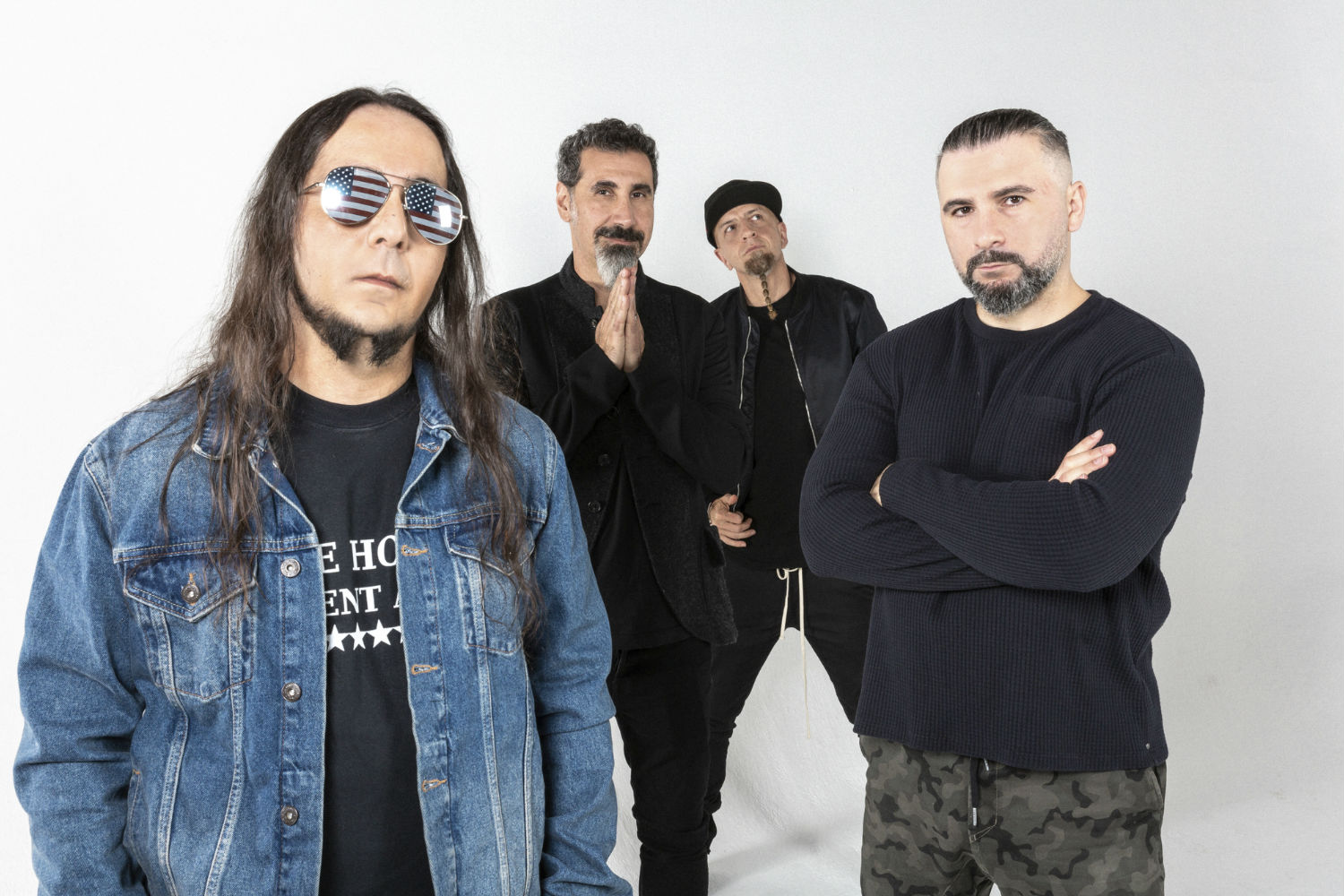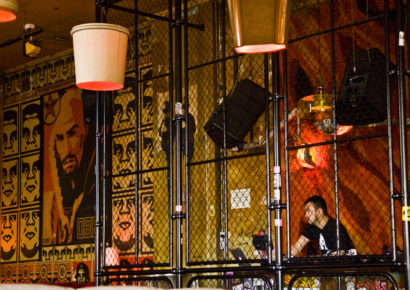In the wake of the US election and amidst what’s been a universally tumultuous year, we’re looking back at some of the most politically outspoken music acts of all time.
Last week, our nation was glued to the media as the presidential election dog fight unfolded in The United States. Biden Vs Trump saw both land and people become divided; protests spilled through the streets of both major cities and humble towns while musicians and celebrities encouraged their fans to vote in what would be one of the most important electoral chapters in America’s political history.
Music played a significant role in the political campaign, not only through musicians advocating for their preferred party but with the integration of song to act as anthems for each candidate’s rallies, press conferences and for the victory speech – Biden selected Tom Petty’s 1989 hit ‘I Won’t Back Down’ for the ceremonious occasion.
While this tradition is not echoed in the Australian political landscape, music and politics have always gone hand in hand. Whether it’s Peter Garrett taking his political agenda from his lyrics as the Midnight Oil frontman to his status as the Minister of Education, Environment, Arts and Heritage, or Helen Reddy flying the feminism flag high for generations to come, politics makes the perfect partner to music.
Amidst a particularly politically tumultuous year, we’re taking a look at some of the music acts famed for incorporating politics into their art.
The Beatles
“You say you want a revolution/Well, you know/We all want to change the world“. The Beatles played an enormous part in being voices for change, leaving behind them an undeniable political legacy. They were one of the first groups to legitimise popular music as a form of political expression, paving the way for bands like Creedence Clearwater Revival and Simon & Garfunkel to follow suit. ‘A Day In The Life’, ‘All You Need Is Love’, ‘Come Together’, ‘Taxman’, ‘Back In The U.S.S.R’ all carry heavy political weight.
Perhaps the most radical member of the Fab Four, John Lennon was the most outspoken when it came to political agendas, staging a two-week ‘Bed-In for Peace’ with Yoko Ono as a protest to the raging Vietnam War, releasing tracks ‘Happy Xmas (War Is Over)’, ‘I Don’t Want To Be A Soldier Mama’, ‘Gimme Some Truth’, ‘Working Class Hero’ and the ultimate anthem ‘Imagine’ during his solo career, spreading the message of ‘peace and love’ like confetti.
Bob Dylan
Bob Dylan made his name shaping political poetry into protest anthems. ‘Blowin’ In The Wind’ scored the Civil Rights era, ‘Masters of War’ not so subtly calls out mass weapon building during the Cold War and ‘Hurricane’ details the false imprisonment of boxer Rubin ‘Hurricane’ Carter, drawing attention to racial profiling. ‘Maggies Farm’ is a declaration of Dylan’s independence from the folk protest movement and, most influentially, ‘The Times They Are A-Changing’ is a call to action for people to see what is happening around them during the Civil Rights Movement and folk protest movement. Nearly 50 years later, Dylan’s songs still act as anthems to modern movements.
Bob Marley
Bob Marley sought to use his platform for progress in the political space fighting for equal rights, justice, peace and freedom. Through his music, conversation and rallying, Marley paved the way for a united Jamaica. ‘Get Up, Stand Up’, ‘Small Axe’, ‘Redemption Song’, ‘War’, ‘Africa Unite’, ‘Them Belly Full (But We Hungry)’, ‘Revolution’, and even ‘I Shot The Sherriff’, covered a wide scope of persuasive political and social messaging. Marley is in many regards considered a spiritual leader for his humanitarian work, progressive efforts and reshaping and uniting of society.
Dead Kennedys
Punk has always had a political undertone – The Sex Pistols caused havoc in England with their protest ‘Anarchy In The UK’ and Johnny Rotten has no filter when it comes to expressing his opinion. Over in the US, that punk political voice has been heralded by Dead Kennedys since ’78. Controversy has followed them but that never bothered the rockers. From their band name to taking on political figures (both liberal and conservative) and turning everything within arms reach into a satirical statement, Dead Kennedys have paved the way for punk bands to follow.
Joan Baez
A singer, songwriter, musician and activist, Joan Baez has been at the forefront of social justice and protest for the last 60 years. Much like Bob Dylan (having performed with him and recorded many of his tracks), Baez sits on the throne of folk music with her stunning vocals and impressive ability to weave political and social messages through her songs. However, her immortalisation as a political musical figure came as Baez took the stage before Martin Luther King Jr.’s legendary ‘I Have A Dream’ speech at the March on Washington Civil Rights protest to sing ‘Oh Freedom’.
N.W.A.
N.W.A. took a beating for hip hop so that artists like Kendrick Lamar, A$AP Rocky, Drake, Childish Gambino and Kanye West could be heard. Representing the genre, representing Compton, representing people of colour, N.W.A. tackled racism, police brutality and socioeconomic discrimination. Their tracks became anthems – ‘Fuck Tha Police’, ‘Express Yourself’, ‘Straight Outta Compton’, ‘Gangsta Gangsta’ – N.W.A. had nothing to hide and everything to say. That didn’t come without controversy, with their track ‘Fuck Tha Police’ getting banned from radio worldwide, including Australia’s triple j. As an anti-censorship response, the station played ‘Express Yourself’ on repeat for 24 hours while staff went on strike in protest. During the recent Black Lives Matter protests, N.W.A. songs were played, their powerful messages continuing to hold true.
Rage Against The Machine
‘Killing In The Name’, ‘Bulls on Parade’, ‘Bullet In The Head’, ‘Testify’ ‘Wake Up’, ‘Voice of The Voiceless’, ‘War Within A Breath’ – Rage Against The Machine have anti-authoritarian, revolutionary political views branded all over their identity. The members, who are all activists and members of political parties, started Rage as a vehicle for social activism across a broad range of issues including domestic and foreign policy, wage slavery, war, and censorship.
Tracy Chapman
While she’s popularly known for her dreamy ballad ‘Fast Car’, Tracey Chapman is a humans rights activist and revolutionary thinker. You don’t need to look much further than her colourful discography to see her comment on social issues like police enforcement, racial abuse, violence, unemployment, consumerism, military missions and sexism. ‘Born To Fight’ and ‘Talkin’ Bout A Revolution’ are monumental tracks that offer Chapman’s uncensored social gaze and have been used as songs of empowerment and protest.
System Of A Down
These Armenian-American metalheads leave no conversation in the social and political space untouched. Bureaucracy, democracy, degradation of women, the media landscape, war, poverty, social hierarchy, globalisation, the Armenian Genocide – Serj Tankian, Daron Malakian, Shavo Odadjian and John Dolmayan are forthright in their opinions. ‘B.Y.O.B’, which stands for Bring Your Own Bombs, offers the candid question “Why don’t presidents fight the war? Why do they always send the poor?” while ‘P.L.U.C.K’ and ‘Holy Mountains’ both refer to the events of the Armenian Genocide.
Woody Guthrie
Another folk singer on the list, Woody Guthrie is not only responsible for the folk revival, but he also penned the ever so relevant song ‘This Land Is Your Land’. The Oklahoma cowboy released hundreds of politically-pointed songs accessible to both adults and children alike. During the World War II period, Guthrie made use of his songwriting talent, writing anti-fascist protest songs. He later became a marine merchant and, post-war, his singing career took off. ‘Tear The Fascists Down’, ‘Bound For Glory’, ‘Deportee (Plane Wreck at Los Gatos)’, ‘Pastures of Plenty’, and ‘1913 Massacre’ are amongst his most political tracks.
Never miss a story. Sign up to Beat’s newsletter and you’ll be served fresh music, arts, food and culture stories three times a week.

